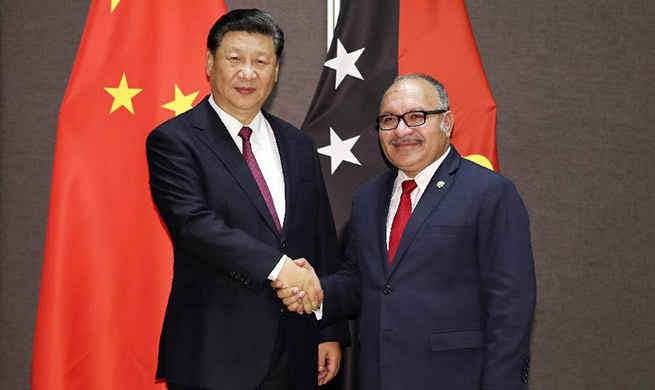FRANKFURT, Nov. 16 (Xinhua) -- European Central Bank (ECB) President Mario Draghi on Friday said the ECB expect the economic expansion in the euro area to continue in the coming years, albeit a loss in growth momentum has been observed recently.
Speaking at the 28th European Banking Congress here, Draghi said, "There is certainly no reason why the expansion in the euro area should abruptly come to an end."
The economy has been expanding for 22 consecutive quarters in the currency bloc, whose Gross Domestic Product (GDP) is around 10 percent above the trough, while the expansion in the U.S. has lasted 37 quarters, and its GDP has risen by 21 percent, Draghi noted.
"The expansion in the euro area is still relatively short in length and small in size," he said, implying that gradual slowdown is normal as growth converges towards its long-run potential.
In his view, the growth slowdown witnessed so far in the euro area was mainly caused by temporary one-off factors like weather, sickness and industrial action, as well as weaker trade growth.
However, Draghi didn't rule out possibilities that weak trade might become longer-lasting threat for economic growth, reminding that two specific risks should be monitored, namely rise of trade uncertainties, in particular owing to protectionism, and spill-over of uncertainty about external demand, which could dampen European domestic demand through confidence and investment channels.
"We still see the overall risks to the growth outlook as broadly balanced, in large part because the underlying drivers of domestic demand remain in place," Draghi said.
He noted that various indicators suggest the virtuous and resilient circle between employment, labor income and consumption, which has been the motor of growth throughout the recovery in Europe, "has not been disrupted by the loss of growth momentum this year".
Underpinned by ECB's ease monetary policy, very favorable financing conditions remain in the euro area, Draghi pointed out, reaffirming that net asset purchases will end by next month, while favorable liquidity conditions and an ample degree of monetary accommodation will maintain as long as necessary.












